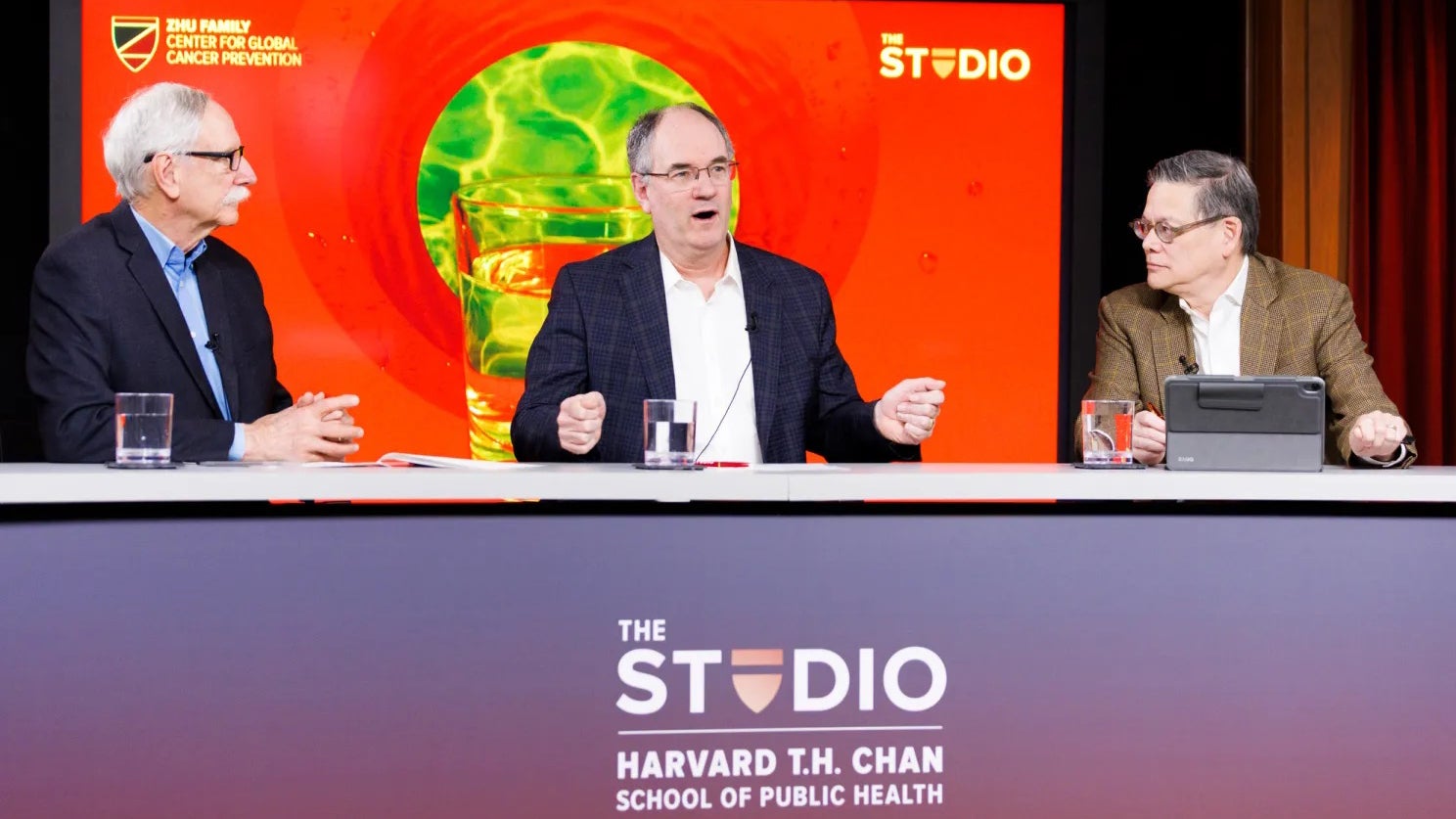Eating dark chocolate linked with reduced risk of type 2 diabetes

The research described in this article was made possible in part by federal funding awarded to Harvard Chan School scientists in the interest of protecting and promoting health for all. The future of research like this is now in question due to the government’s actions to terminate large numbers of grants and contracts and freeze funding for scientific inquiry and innovation across Harvard University.
Boston, MA—Consuming dark, but not milk, chocolate may be associated with lower risk of developing type 2 diabetes (T2D), according to a new study from Harvard T.H. Chan School of Public Health.
“Our findings suggest that not all chocolate is created equal,” said lead author Binkai Liu, doctoral student at the Harvard Kenneth C. Griffin Graduate School of Arts and Sciences, studying in the Harvard Chan School Department of Nutrition. “For anyone who loves chocolate, this is a reminder that making small choices, like choosing dark chocolate over milk chocolate, can make a positive difference to their health.”
The study was published online Dec. 4 in The BMJ.
There is an existing body of research on the relationship between chocolate and T2D but findings have been inconsistent, and few studies have differentiated between chocolate subtypes (dark versus milk).
The researchers sought to fill this gap using data from the Nurses’ Health Studies I and II and the Health Professionals Follow-up Study. Over the course of 30+ years, 192,000 adult participants who were free of diabetes at the study’s outset reported on their food habits, including chocolate consumption, as well as their diabetes status and body weight. By the end of the study period, nearly 19,000 of the total participants reported being diagnosed with T2D. Of the nearly 112,000 who reported specifically on their dark and milk chocolate intake, nearly 5,000 were diagnosed with T2D.
The study found that participants who consumed at least five ounces of any type of chocolate per week had a 10% lower risk of T2D compared to those who never or rarely consumed chocolate. Dark chocolate had an even bigger impact: Participants who consumed at least five servings of this chocolate per week showed a 21% lower risk of T2D. The researchers also observed a 3% reduction in risk for every serving of dark chocolate consumed per week. Consumption of milk chocolate, meanwhile, was not associated with reduced T2D risk. Increased consumption of milk chocolate, but not dark chocolate, was associated with long-term weight gain, a potential contributor to the development of T2D.
“We were surprised by the clear split between dark and milk chocolate’s impact on diabetes risk and long-term weight management,” said corresponding author Qi Sun, associate professor in the Departments of Nutrition and Epidemiology. “Even though dark and milk chocolate have similar levels of calories and saturated fat, it appears that the rich polyphenols in dark chocolate might offset the effects of saturated fat and sugar on weight gain and diabetes. It’s an intriguing difference that’s worth exploring more.”
The authors noted that participants’ chocolate consumption was low relative to previously recorded national averages and that the findings may not apply to individuals with very high chocolate consumption.
Other Harvard Chan authors included Lu Zhu, Yang Hu, JoAnn Manson, Molin Wang, Eric Rimm, and Frank Hu.
The study was funded by the National Institutes of Health (grants UM1 CA186107, P01 CA87969, R01 HL034594, U01 CA176726, U01 CA167552, R01 HL035464, R01 HL60712, R01 DK120870, R01 DK126698, R01 DK119268, U2C DK129670, R01 ES022981, and R21 AG070375).
“Chocolate intake and risk of type 2 diabetes: prospective cohort studies,” Binkai Liu, Geng Zong, Lu Zhu, Yang Hu, JoAnn E. Manson, Molin Wang, Eric B. Rimm, Frank B. Hu, Qi Sun, The BMJ, published online December 4, 2024, doi: 10.1136/bmj-2023-078386
Visit the Harvard Chan School website for the latest news, press releases, and events from our Studio.
For more information:
Maya Brownstein
mbrownstein@hsph.harvard.edu
###
Harvard T.H. Chan School of Public Health is a community of innovative scientists, practitioners, educators, and students dedicated to improving health and advancing equity so all people can thrive. We research the many factors influencing health and collaborate widely to translate those insights into policies, programs, and practices that prevent disease and promote well-being for people around the world. We also educate thousands of public health leaders a year through our degree programs, postdoctoral training, fellowships, and continuing education courses. Founded in 1913 as America’s first professional training program in public health, the School continues to have an extraordinary impact in fields ranging from infectious disease to environmental justice to health systems and beyond.


